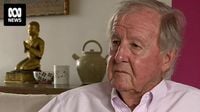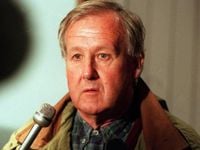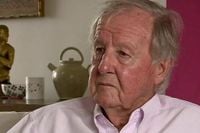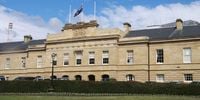Former Tasmanian Premier Tony Rundle has died, leaving behind a legacy of reform and leadership during a period of significant change for the island state. Rundle served as Premier from 1996 to 1998 and represented the electorate of Braddon as a Liberal MP from 1986 to 2002. Current Premier Jeremy Rockliff described Rundle as a “mentor and reformist” who approached leadership with courage. “Tony was a leader of conviction who set a courageous agenda in difficult economic times,” Rockliff said.
Rundle’s premiership saw the implementation of several significant initiatives including the remodelling of TAFE Tasmania, the establishment of Service Tasmania, and the negotiation of Australia’s first Regional Forest Agreement. He also oversaw the commencement of the BassLink project and delivered the state’s apology to Tasmania’s Aboriginal community.
Before becoming Premier, Rundle served as Treasurer under Ray Groom’s leadership, where he championed extended shop trading hours and established the Superannuation Provision Account. “I well recall Tony being a tower of strength and compassion as he led Tasmanians through the shock, grief, and trauma of the tragedy at Port Arthur,” Rockliff said. “In unity with Prime Minister John Howard, he drove critical gun law reform that all Australians benefit from today.”
Rundle is survived by his family, with Premier Rockliff extending condolences to his wife Caroline and daughters Helen and Jane. He was born Anthony Maxwell Rundle in Scottsdale in March 1939, and before entering politics, he worked as a real estate agent and television journalist. He was elected to parliament for the seat of Braddon in 1986 and became Premier in 1996 after the Liberal Party formed a minority government.
Rundle’s time as Premier was marked by significant challenges, including the aftermath of the Port Arthur massacre in April 1996, which left 35 people dead. This tragedy prompted Rundle to advocate for tighter gun control laws, leading to the 1996 National Firearms Agreement. “We’ve had a dreadful massacre in Tasmania, I think everyone is still in shock, and if that doesn’t precipitate an outcome today that makes Australia safer for its citizens, you would wonder if we’ll ever reach that stage,” Rundle said at a Canberra meeting of state and territory ministers.
During his short leadership, Rundle also made strides in social reform, including the decriminalization of homosexual activity in Tasmania in 1997, after he granted the Liberals a free vote. In the same year, Tasmania became the first state to make a public apology to the Stolen Generations, with Rundle reading the motion in front of a packed public gallery.
Despite facing criticism, Rundle signed the 20-year Regional Forest Agreement in 1997, which facilitated logging on public land but also protected 400,000 hectares of native forests. While this decision angered some environmental groups, Rundle later described the forest agreement as one of his greatest achievements.
Rundle's reformist agenda included a Directions Statement that proposed a partial sale of the Hydro-Electric Commission and a referendum on the size of parliament. Although the referendum did not succeed, Rundle oversaw the downsizing of parliament in 1998. His government’s push to sell the state-owned hydro-electricity company was considered a key factor in the Liberals’ loss at the August 1998 election.
After his defeat, Rundle remained active in politics as the opposition leader for a year before retiring in 2002. In recognition of his contributions to law reform policy, he was made an Officer of the Order of Australia in 2010.
Premier Rockliff reflected on Rundle's character, stating, “Tony was intelligent, kind, and considered. A remarkable man, leaving a positive legacy.” Close friend and cabinet colleague Ray Groom also paid tribute, saying, “He was a very respected colleague and respected premier of Tasmania, someone who was very hard-working, very compassionate.”
Rundle’s family has requested no state funeral, reflecting his wishes for a small gathering of family and friends. He leaves behind his wife Caroline, daughters Helen and Jane, and three grandchildren. Rundle’s contributions to Tasmania will be remembered as pivotal in shaping the state during a transformative period.










